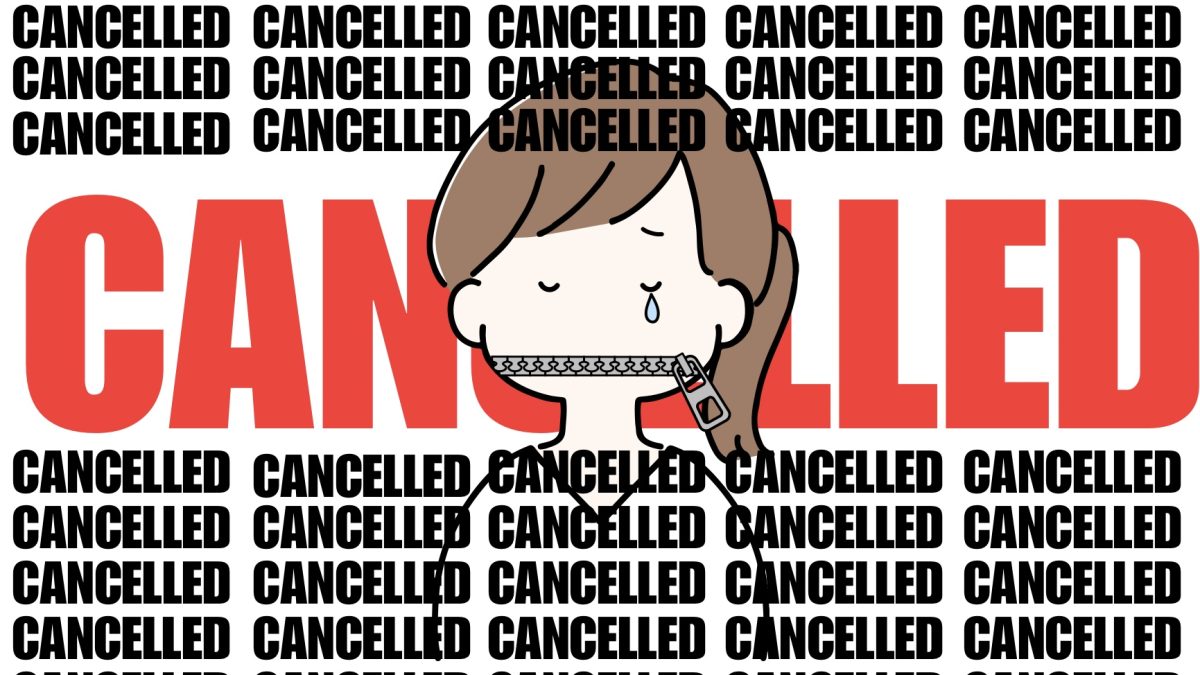In the age of subtweeting, influencing, and online activism, we find ourselves at a crossroads. Social media’s intended purpose to connect has drastically derailed, leaving us stranded in isolation. The frequent mob mentality of “cancel culture” poses the following question: do the repercussions of this method align with its original intent?
The term “cancel culture” was coined around 2017 in reference to the collective disengagement or shunning of a public figure due to behavior that has been deemed “problematic” by the public. More recently is when people began to question what actions actually classify as problematic, and whether or not they are just differing viewpoints between the influencer and the influenced. Or, more significantly, whether or not a person’s harmful actions were merely taken out of context, thus leading to a rather unjust punishment.
According to Julia McHugh, public relations specialist and professor, cancel culture has shifted the PR industry by pushing more for authenticity and transparency in brands and public figures. A key component to managing these brands, she says, is being well versed in crisis communications. A crisis, which refers to any issue that has a long-term impact on a brand, is described by McHugh to be “uncontrollable and fast moving.”
“Everything that you say could be taken out of context,” said McHugh. “So you can wake up one morning and you are canceled. Even if you have done everything right, it might happen.”
Anyone who experiences being canceled can also be subjected to further attack. In these instances, the public uses the online forum to their advantage. Doxxing, or posting someone’s home address online, is a punishment that exposes extremely private information about very public people – therefore putting them in a position of real danger. No research, however, is required for death threats, making them more frequent due to their unfortunate convenience. These threats to physically harm a person often appear in the form of anonymous online messages, and anyone in the prime of their cancellation will likely notice an influx of them when logging into their social media accounts.
A main factor in the uprising of canceled culture is an overall lack of media literacy, particularly amongst younger generations. According to a survey conducted by Pew Research Center in Oct. 2023, 83% of people ages 18-29 prefer receiving their news from digital devices over any other source.
On social media in particular, all users have the ability to post anything that falls under the given community guidelines of that site. This not only allows users to resurface old videos of public figures that may be taken out of context, but it also grants them the ability to make false accusations about a given brand or person.
With newer generations receiving information primarily from online sources, it makes this concern for the lack of credibility in media more urgent than ever before.
McHugh criticized those who refer to cancel culture as a form of deplatforming or woke journalism, pointing out that true journalism is objective. Comparatively, she spoke in detail of the best strategies taken by the canceled. At the top of her list was an authentic apology.
“Drafting an apology is kind of an art at this point,” said McHugh. “Apologizing doesn’t always mean you’re wrong. It just means you value your relationships more than your ego.”
When public figures and their brands are forced to focus more on the way in which their reaction to their own cancellation is perceived, how much are we benefiting society by deplatforming them?
We have strayed far from the intent to hold people accountable – rather, the public is so eager for a brand or person’s “true colors” to be exposed that they latch onto any opportunity to shame them for their behavior – behavior that is oftentimes ambiguous in its validity.
Cancel culture is disguised as social activism. In reality, it is a performative measure taken by the public to separate themselves from problematic viewpoints or actions in an effort to defend their own reputation – one that will never be subject to as much scrutiny as those in the limelight.









